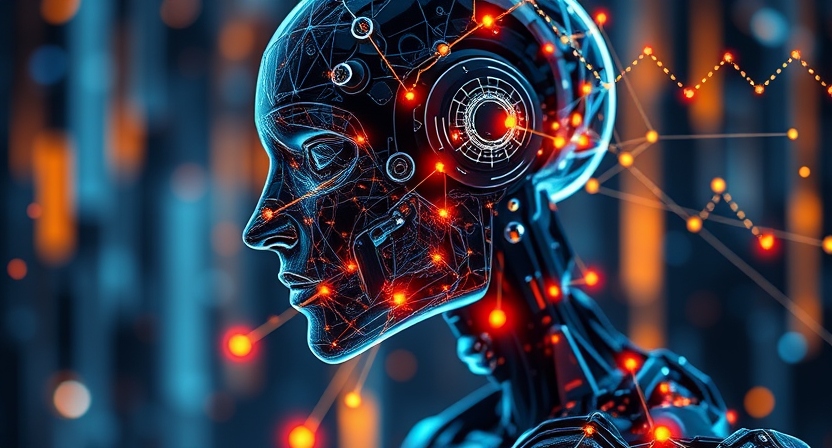Due to the numerous obstacles researchers must overcome, quantum computing (QC) has frequently felt like a theoretical idea. The most important of them is increasing the number of qubits—the information units that these amazing pieces of technology employ to carry out tasks. Qubits can be either—or both at the same time—in contrast to traditional computer “bits,” which are either 1s or 0s. That is essential for simulating molecular-level quantum mechanics, which requires far faster computing rates.
However, because Microsoft concentrates on another important topic, quantum computers are becoming closer to reality. A new era in quantum computing has begun with Microsoft and Quantinuum’s discovery of a method to verify qubit faults without changing the environment of a quantum computer.
Because even the smallest changes may produce “noise,” making it difficult to obtain correct results, quantum computers are known to be unreliable. This issue is resolved by Microsoft and Quantinuum’s discovery, which rekindles the fierce competition between leading tech firms like IBM, Google, and Microsoft to dominate quantum computing.
However, even once quantum computing becomes the dominant technology, its possible effects are still mostly hypothetical. Despite its theoretical character, quantum has still attracted a lot of investment in the hopes that it could revolutionize several
sectors. Here are some examples of how quantum computing enables significant breakthroughs in fields including cybersecurity, medicinal research, and finance.
1: Aerospace and Defense

Quantum computing has enormous promise for use in aerospace and military as it will optimize many aspects of engineering, simulation, and security.
Aerospace Engineering and Quantum Computing
Quantum simulations of an airplane or spaceship might produce appropriate design and performance within the parameters of aeronautical engineering. These simulations can also accurately represent alloys, structural stability, and aerodynamics, which will result in safer and more effective automobiles.
Improvements to Defense Plans and Systems
By offering logistic optimization, cryptographic security, and simulations of intricate military scenarios, quantum computing also improves the different defense systems. Quantum algorithms can evaluate enormous volumes of data, recognizing various risks and creating efficient responses.
Applications in Real Life and Prospects for the Future
NASA and other US Department of Defense departments have already started looking into the potential uses of quantum computing. While the Department of Defense sees it in secure environments, NASA uses mission planning and spacecraft navigation to demonstrate quantum algorithms.
Sophisticated simulations and communications. It is anticipated that these technologies will transform defense and aerospace capabilities as they advance.
2: Healthcare and Genomics

Quantum computing has great promise for improving genetics and healthcare, as well as providing more accurate and personalized therapies.
Medical Research Using Quantum Computing
Quantum computers can be used to better comprehend a variety of illnesses by modeling biological processes at the molecular level. New therapies will then become possible as a result. Protein folding, chemical interactions, and genetic mutation may all be modeled with extreme accuracy by quantum simulations, which can offer some extremely helpful insights into medical studies.
Developments in Personalized Medicine and Genomics
To give more accurate diagnostic findings and individualized therapy, quantum computing can speed up the studies of genomic data used to diagnose genetic illnesses. Quantum algorithms demonstrate how customized medicine is achievable with just genomics by identifying genetic markers linked to illnesses and forecasting a person’s reaction to different treatments.
Effect on the Provision of Healthcare and Its Results
In this sense, quantum computing can overcome some of the high dimensionality issues in healthcare and improve patient outcomes by improving therapeutic efficacy and diagnostic accuracy. Quantum technology has the potential to significantly impact medical practice and improve patient quality of life globally by proposing accurate and pertinent therapies.
3: Energy Management and Sustainability

Through the optimization of energy production, distribution, and consumption, quantum computing can be helpful in energy management and sustainability.
Quantum Methods for Optimizing Energy
To generate and distribute electricity more efficiently, quantum algorithms can optimize energy networks. By reducing energy waste, these improvements improve the integration of renewable energy sources and save money.
Smart Grid and Renewable Energy Applications
By refining their designs and functionalities, quantum computing will help increase the efficiency of wind turbines and solar panels in renewable energy. To prevent blackouts and reduce energy waste, it can also more effectively apply quantum algorithms to smart grids, balancing their supply and demands in real-time.
Possibility of a Sustainable Future
A far more robust and sustainable energy infrastructure may be advanced by quantum computing in energy systems. By lowering the detrimental environmental consequences of energy generation and fostering resource efficiency, quantum computing can play a critical role as the world works to mitigate climate change and achieve sustainable development.
4: Climate Modeling and Weather Forecasting

Quantum computing has made climate modeling and weather forecasting possible, which is crucial for understanding environmental changes and safeguarding humans from the ensuing natural disasters. Complex data processing may be accelerated by quantum computers, which can also simulate the models used in weather forecasting and climate modeling.
Climate Science and Quantum Computing
Quantum computers can do extremely accurate simulations of the atmosphere and oceans, which will serve as the foundation for more accurate climate models. They assist scientists in accurately assessing the effects of climate change as well as in forecasting weather events and developing mitigation and adaptation plans.
Accuracy Gains in Weather Prediction
Numerous industries, including agriculture, aviation, and even crisis management, would benefit from improved weather forecasting. Predictions made by quantum-enhanced models would be far more precise and timely, enabling planning and better handling of weather-related issues.
Benefits to the Environment and Society
Resource management, disaster preparedness, and environmental care will be influenced by climate models and weather forecasts. Understanding and forecasting climate trends gives society the ability to take action to save ecosystems and people.
5: Optimization Problems

There are several optimization issues in scheduling, production, and logistics. Such issues may be solved much more effectively with quantum computing than with traditional methods, potentially leading to significant increases in operational efficiency.
Quantum Approaches to Optimization Problems
Combinatorial optimization problems can have a large solution space, and quantum computers excel at them. Highly complicated issues, such as resource allocation and route optimization, can be effectively solved by algorithms like the Quantum Annealing Algorithm.
Effects on Manufacturing, Supply Chain, and Logistics
These days, supply chain management and logistics may use quantum computing to optimize routes, cut down on delivery times, and save expenses. Manufacturers may speed up manufacturing processes, improve quality control, and cut down on potential waste by utilizing their quantum algorithms. This will ultimately result in better and more sustainable operations.
Real-World Applications and Success Stories
These days, businesses like Volkswagen and Airbus are interested in optimization powered by quantum computing. Volkswagen has demonstrated its ability to alleviate traffic and enhance modern urban mobility by successfully using a quantum algorithm to optimize traffic flow in Beijing City. With the potential to increase production and efficiency, more industries will embrace increasingly substantial quantum solutions.
6: Artificial Intelligence and Machine Learning

On the other hand, quantum computing can help boost the potential of AI and ML, which often rely on processing massive datasets and sophisticated algorithms more quickly and efficiently.
Improving ML and AI using Quantum Computing
Due to their ability to handle and analyze enormous amounts of data in parallel, quantum computers are well-suited for developing AI models and resolving challenging machine-learning issues. Some jobs will be performed far better by quantum machine learning algorithms than their classical equivalents, such as the quantum support vector machine and quantum neural networks.
Algorithms for Quantum Machine Learning
Consequently, success in image analysis, pattern recognition, and natural language processing may arise from the possible innovations of quantum-augmented machine learning algorithms. It aids in improving AI applications in a wide range of fields, from driverless cars to medical diagnostics.
Instances of Developments and Upcoming Patterns
Tech giants like Google and IBM are spearheading research on AI fueled by quantum computing. The Google Quantum AI team achieved what is known as quantum supremacy in 2019, which is thought to be proof that a quantum computer can do specific tasks far more quickly than any conventional supercomputer. AI systems will advance along with quantum technologies.
7: Material Science and Nanotechnology

Nanotechnology is being advanced, and new materials with unique features are now possible because of quantum computing’s ability to simulate and comprehend materials at the atomic level.
Simulations of Quantum Matter in Material Science
Thus, quantum simulations will offer a reasonably realistic model of material behavior under various situations, paving the way for the development of superconductors and catalysts. Material qualities that are ordinarily difficult or impossible to ascertain using conventional approaches can be revealed by these simulations.
Advances in Nanotechnology
With quantum computing, nanotechnology—the study of matter at the atomic and subatomic levels—will undoubtedly advance significantly. To innovate electronics, medicine, and energy storage, the quantum computer can help create materials and devices at the nanoscale level that perform certain tasks.
Applications and Opportunities in the Real World
The applications of this quantum-enhanced material science are many. For example, researchers are employing quantum simulations to create stronger building materials, improved batteries, and novel carbon-based materials like graphene, which will significantly boost technology across several sectors.
8: Financial Modeling and Risk Management

Data and intricate models that need enormous computational resources are the backbone of the financial sector. By analyzing massive amounts of information to answer complex issues more quickly than traditional computers, quantum computing enables financial modeling and risk management.
Financial Markets and Quantum Algorithms
Quantum algorithms, like QAOA, may be used to price derivatives, manage portfolios, and improve trade tactics. Quantum algorithms’ real-time analysis of enormous volumes of financial data gives traders access to previously unattainable insights and possibilities.
Advances in Risk Modeling and Assessment
Risk management is another area where quantum computing would have a significant influence. With the help of many factors and market situations, quantum computers can mimic the development of risk models by financial institutions more accurately and properly than ever before. From the perspective of a financial crisis, this would result in more accurate decision-making and less vulnerability.
Case Studies and Industry Acceptance
They want to know what issues quantum computing may help them with to become more competitive. In 2019, IBM and JPMorgan Chase created a quantum options pricing algorithm that showed promise for more effective resolution of intricate financial issues. With the development of quantum technologies, their use in the financial industry is probably going to grow.
9: Drug Discovery and Pharmaceuticals

Drug discovery can be significantly improved by quantum computing, which can simulate molecular interactions at a quantum level. It used to take years and a lot of processing power to run these simulations to find potential drugs. The time and expense associated with introducing new medications to the market will be significantly decreased by the use of quantum computers.
Pharmaceutical Breakthrough Examples
It’s no surprise that big pharmaceutical corporations like Merck and GlaxoSmithKline are also unaware of this, as they have invested in quantum computer research to improve their drug discovery procedures. To find potential molecules and anticipate their interactions with extreme precision, quantum computers may be utilized to mimic many intricate biological processes. These discoveries may prove to be very helpful in the treatment of uncommon genetic illnesses, cancer, and Alzheimer’s disease.
Prospects for the Future and Current Research
Beyond drug development, quantum computing is still useful in the pharmaceutical industry. Quantum computing analysis of the genetic data can help produce vaccines and other therapies more suitable for individual usage. Shortly, innovative approaches to illness prevention and treatment will undoubtedly be made possible by ongoing research in quantum chemistry and biology, improving health conditions globally.
10: Cryptography and Security

To create unbreakable cryptosystems, quantum cryptography uses techniques beyond the fundamentals of quantum physics. Quantum cryptography uses qubits, in contrast to traditional encryption, which is all about complex mathematical problems. These are quantum bits that are capable of being in several states at once. In the event of theft and decryption, this very feature renders the interceptor’s work all but impossible.
Effect on Encryption and Data Security
By putting quantum cryptography into practice, a new era would be ushered in where private businesses, government organizations, and financial institutions could safely access their valuable data without worrying about cyberattacks. The renowned quantum cryptography method known as Quantum Key Distribution, or QKD, guarantees that any effort to intercept a conversation will be promptly identified, providing the utmost security.
Actual Cases and Possibilities
Several companies, including Toshiba and ID Quantique, are developing quantum cryptography systems. China successfully proved QKD across long-distance lines in 2020 with the launch of Micius, the first quantum communication satellite in history. As quantum technology advances, we may anticipate its use to meet the high-security requirements of sensitive data and vital infrastructure.
In conclusion
With its unrivaled processing power and capacity to solve difficult issues, quantum computing will soon overwhelm several sectors. The list of suggested uses for quantum computing is extensive and has the potential to revolutionize several fields, including genetics, healthcare, and cryptography.
As technology advances, far more creative solutions will be seen, establishing the standard for the future. The fact that this article lists the top ten uses for quantum computing only serves to highlight how amazing this technology is. As this era of quantum computing drives growth and innovation in every field, one can only hope that with understanding and adaptation to these changes, many advantages may be gained.
Check out GizOasis more to stay connected.







